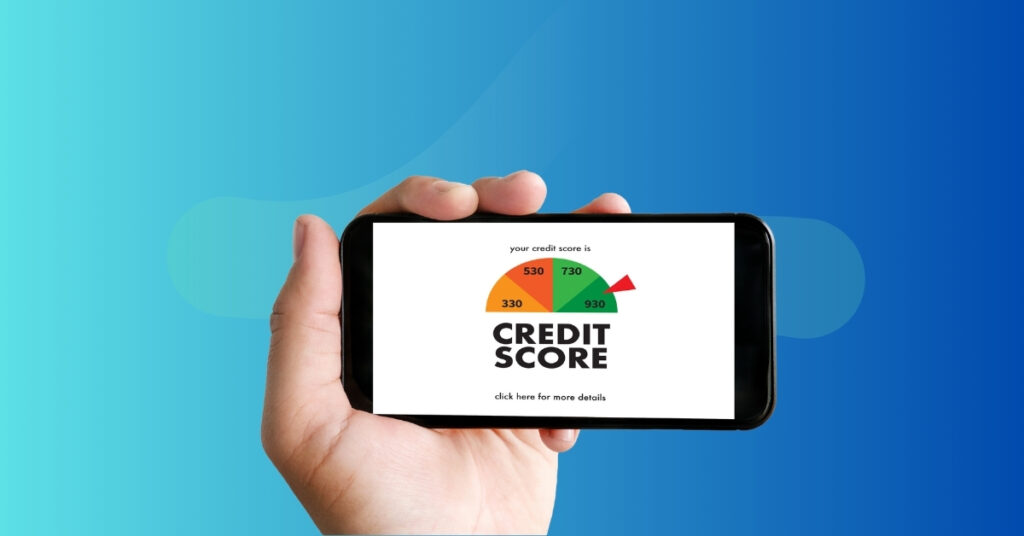Improve Your Credit Score to Secure a Business Loan
Securing a business loan can be a game-changer for your company’s growth and success. However, one of the most important factors lenders consider when determining loan approval is your credit score. A good credit score can significantly improve your chances of securing favorable loan terms, while a poor score may limit your options.
Understanding how to improve your credit score before applying for a business loan is essential to getting the funding you need. This guide provides step-by-step strategies to boost your credit score, improve your financial credibility, and enhance your ability to secure a business loan with favorable terms.
What Do Lenders Look for in Your Personal Credit Score?
Lenders consider various factors when evaluating your creditworthiness for a business loan, and your personal credit score is one of the most significant. While lenders typically focus on your business credit history, your personal credit score is also considered, especially for small businesses and startups.
Here are the main aspects of your personal credit score that lenders will focus on:
- Payment History: Lenders want to see a history of on-time payments. Any missed or late payments could be a red flag.
- Credit Utilization: Lenders check how much of your available credit you are using. A high utilization ratio suggests potential financial instability.
- Credit Length: The longer your credit history, the more confident lenders will be in your ability to manage debt.
- New Credit: Frequently opening new credit accounts can negatively impact your score and raise concerns for lenders.
- Types of Credit Used: A mix of credit types (credit cards, loans, mortgages) shows lenders that you can handle various financial responsibilities.
Why a Good Credit Score is Crucial for Business Loan Approval
Your credit score is one of the most critical factors lenders use to assess the risk of lending you money. A good credit score indicates that you’re financially responsible, have a track record of repaying debts, and are less likely to default on a loan.
- Better Loan Terms: A higher credit score often results in lower interest rates, reducing your overall loan cost.
- Increased Loan Eligibility: A strong credit score may allow you to qualify for larger loan amounts or more favorable repayment terms.
- Faster Approval Process: With a good credit score, lenders may approve your loan application more quickly, reducing the time you need to wait for the funds.
- Increased Trust with Lenders: Lenders are more likely to work with borrowers who have a solid credit score since it reduces their financial risk.
A low credit score, on the other hand, may lead to higher interest rates, smaller loan amounts, or even loan rejection. It’s crucial to work on improving your credit score before applying for a business loan to secure the best possible terms.
How Your Business Credit Score Impacts Loan Terms and Interest Rates
Your business credit score plays a significant role in determining your loan terms, including the interest rate and repayment schedule. Lenders use this score to assess the risk of lending to your business.
Here’s how your business credit score can impact the loan terms:
| Credit Score Range | Interest Rate | Loan Terms |
| 750 and above | Low | Long-term, favorable rates |
| 700–749 | Moderate | Competitive rates and terms |
| 650–699 | High | Shorter repayment periods, higher interest |
| Below 650 | Very high | High-interest rates, limited loan options |
A higher business credit score often means lower interest rates, longer repayment terms, and better overall loan conditions. If your business credit score is low, you may still qualify for a loan, but the terms might be much less favorable, leading to higher monthly payments.
Key Steps to Improve Your Credit Score Before Applying for a Business Loan

Improving your credit score is a crucial step in securing a business loan. Here are the key steps you should take:
- Check Your Credit Report
Obtain a copy of your business and personal credit report. Review it carefully for any errors, such as incorrect late payments, outdated information, or accounts that aren’t yours. Dispute these errors with the credit reporting agencies to have them corrected. - Pay Your Bills On Time
Payment history is a significant factor in both personal and business credit scores. Ensure that all your bills, including credit cards, loans, and utility payments, are paid on time. Set up reminders or automate payments to avoid missing due dates. - Reduce Your Credit Utilization
A high credit utilization ratio (the percentage of your available credit you’re using) can negatively affect your score. Aim to keep your credit utilization below 30% of your available credit limit. Consider paying down existing debt or requesting a higher credit limit to lower the ratio. - Avoid Opening New Credit Accounts
Opening multiple new credit accounts in a short period can lower your credit score. Lenders may view this as a sign of financial instability. Avoid applying for new credit until after your loan has been approved. - Keep Old Accounts Open
The length of your credit history affects your score. Avoid closing old accounts, as they can help improve your credit score by increasing the average age of your accounts.
By following these steps, you can gradually improve your credit score and enhance your chances of securing a favorable business loan.
Factors That Affect Your Business Credit Score
Several factors contribute to your business credit score, each playing a role in how lenders view your business. Here are the key elements that influence your business credit score:
- Payment History
A strong history of on-time payments can significantly boost your business credit score. Late payments, especially those that are 30 days or more past due, can have a substantial negative impact. - Credit Utilization
Just like personal credit, the amount of available credit you use affects your business credit score. Keep your credit utilization low to improve your score. - Public Records
Bankruptcies, liens, and judgments appear on your credit report and can significantly damage your business credit score. Always address any legal issues as soon as possible. - Company Size and Age
New businesses typically have lower credit scores due to a lack of established credit history. Over time, as your business grows and develops a stronger credit history, your score should improve. - Credit Mix
A healthy mix of credit types (e.g., revolving credit, loans, and trade credit) shows that your business can handle different forms of credit responsibly.
How to Check Your Business Credit Report for Errors
Checking your business credit report regularly is essential for maintaining a good credit score. Mistakes on your credit report can drag your score down, so it’s important to catch them early. Here’s how you can check and dispute errors:
- Obtain Your Business Credit Report
Request a copy of your credit report from major reporting agencies like Dun & Bradstreet, Equifax, and Experian. Review the details carefully for any inaccuracies. - Dispute Any Errors
If you find errors on your report, file a dispute with the credit reporting agency. This may involve submitting supporting documentation to prove that the information is incorrect. - Monitor Regularly
Regularly check your business credit report to ensure that new errors don’t appear, especially after resolving previous issues.
How to Reduce Business Debt to Improve Your Credit Score
Reducing your business debt is a critical component of improving your credit score. The following strategies can help you manage and reduce debt effectively:
- Pay Off High-Interest Debts First: Focus on paying off debts with the highest interest rates to reduce your overall debt load more quickly.
- Refinance or Consolidate Debt: Consider consolidating multiple loans into one with a lower interest rate, making it easier to manage your payments.
- Negotiate with Creditors: If you’re struggling with repayment, contact your creditors to negotiate better terms, such as lower interest rates or extended repayment periods.
The Importance of Making Timely Payments on Existing Loans
Timely payments on your existing loans and debts are one of the best ways to improve your credit score. Missed payments can have an immediate negative effect on your credit report, while consistent, on-time payments demonstrate financial responsibility.
Consider setting up automatic payments for recurring bills or using payment reminders to ensure you never miss a due date.
The Role of Personal Credit in Securing a Business Loan
While your business credit score is crucial, lenders may also consider your personal credit score when evaluating your loan application. This is especially true for new businesses that don’t yet have an established credit history.
A strong personal credit score can help offset any gaps in your business credit. Ensure that your personal credit is in good shape before applying for a business loan to improve your chances of approval.
How to Build Credit from Scratch for Your New Business
If your business is new and doesn’t have a credit history, building credit from scratch can be challenging but not impossible. Start by opening a business credit card or applying for small trade credit accounts. Paying these accounts off in full and on time will help establish a positive credit history for your business.
How to Manage Your Credit Utilization Ratio Effectively
Credit utilization is an important factor in both personal and business credit scores. To manage your ratio effectively, try the following:
- Pay down existing balances: Reducing your debt lowers your credit utilization ratio.
- Request a higher credit limit: This can help decrease your credit utilization ratio without needing to pay off debt.
The Impact of Late Payments on Your Business Credit Score
Late payments have a lasting impact on your business credit score. Even a single late payment can stay on your report for several years, significantly lowering your score. To avoid this, make sure to prioritize on-time payments.
Why You Should Separate Personal and Business Finances
Keeping personal and business finances separate is crucial for maintaining a healthy business credit score. This separation ensures that your business builds its own credit history and reduces the impact of personal financial issues on your business’s ability to secure loans.
FAQ
What is the minimum credit score required to secure a business loan?
The minimum credit score required depends on the lender, but typically, a score of 680 or higher is needed for the best terms.
Can I get a business loan with a poor credit score?
Yes, but with higher interest rates and less favorable terms. Consider looking into alternative lenders if your credit score is low.
How long does it take to improve my credit score for a business loan?
It can take several months to improve your score, depending on the severity of your credit issues.
How does my personal credit score affect my business loan approval?
Lenders may look at your personal credit score, especially for small businesses or startups, to gauge your financial responsibility.
What are the best ways to improve my business credit score quickly?
Pay down high-interest debt, ensure on-time payments, and check your credit reports for errors.
How often should I check my business credit report for errors?
Check your business credit report at least once a year, or more frequently if you’re planning to apply for a loan.
How can I raise my business credit score if I have a limited credit history?
Start building your credit by opening a business credit card and applying for small trade accounts. Make timely payments to establish a positive credit history.

